The Originals
- John O'Brien
- February 3, 2020
- Edited 4 months ago
Table of Contents
The Originals: Part One
By Francis McGarry
It was a tad bit chilly the other day.
As I left school, I placed a knitted stocking cap on my head. It was knitted by a friend of mine who is at the early stages of knitted stocking caps. The end product was rather unique.
One of the students commented on the uniqueness of the stocking cap on my head. Another turned to him and said, “He’s Irish.” That happens quite a bit at school. It has been used to explain my haberdashery, vocabulary and my forehead on Ash Wednesday.
The kids have no idea what “Irish” means and who the Irish were in America. In Cleveland we have records that elucidate who the Irish originals, including an article by William Gleason in the Plain Dealer in 1896. The following is an excerpt from that article:
The earliest settlers of Cleveland number among its inhabitants a respectable sprinkling of the vigorous sons and daughters of the Emerald Isle. Among the first people of that nationality to make their homes here and grow up in our community as useful, industrious and thrifty citizens were the following: William Murphy, 1830; the Evans family, Arthur Quinn, John Smith, 1833; Dr. Robert Bailey; Dr. Johnson(died 1847); Robert Sanderson and Joseph Turney, 1834; Hugh Buckley, Sr., and David Pollock, 1835; Hugh Blee, Patrick Smith and Fathers Dillon and O’Dwyer, 1836; Capt. Michael C. Frawley, D. McFarland, the Cahill, Conlan and Whelan families, 1837; Father Peter McLoughlin, Michael Feely, Michael Gallagher and Philip Olwill, 1838; the Farnan and Gibbons families and Charles C. Rogers, 1839; Patrick Farley, 1840; John and William Given, 1841; Rev. A. McReynolds and William Milford, 1842; the West Side McMahon family, John, Matthew, Thomas and Patrick McCart, 1845; Prof. Fitzgerald, Patrick W. and his son William J. Gleason; Patrick H. Breslin, Peter F. and Patrick McGuire, Squire Duffy, William McReynolds, Dr. Strong and the Story family, 1847; William and his son, Thomas G. Fitzsimons; Dennis and his sons John, Patrick, W.D. and L.D. Gleason, John Holland, Patrick Walsh, William Kenney, Patrick Monks, Patrick O’Rourke, Daniel and Patrick O’ Brien, Frank and his son, Owen Kane, Thomas Maher, James Farasey, Patrick O’Mara, Patrick Buckley, Michael Mooney, Paul McGuire, Patrick M. Smith, John Shields, Christopher Mullen, James Dunn, William Mulcahy, Luke Brennan, James McMahon, James Walsh, James Reardon, the Barrett, Brasell, Carr, Carroll, Collins, Connelly, Costello, Daley, Day, Delaney, Dempsey, Fanning, Farrell, Gallagher, Galwey, Hayes, Keary, Kelley, Lynch, Lee, Manning, McGee, Nevins, Powers, Reeves, Ryan, Sheehan, Tobin, Tierney and Washington families, 1848.
Passage over the stormy Atlantic was far different in the early days from what it is at the present time. The pioneer emigrants came over in sailing vessels, and six weeks was considered a quick passage. The frail vessels tossed about on the angry ocean waves, followed by a calm that would last for weeks at a time. How the poor people suffered with sickness, often with hunger and thirst, but never with despair; for on the other side was God’s own country, liberty, and the opportunity to secure a home, a fortune, to be a man among America’s free men.
One of our old friends recently told us that it took him three months and three days to cross from Liverpool to New York; and three weeks and four days by canal boat, stage and foot, from New York to Cleveland, but at he end of his tedious journey he found his father and mother and a little patch of their own ground to till, which repaid him for all of the hardships he endured. He has for years been one of our most prosperous citizens, but he has always preserved a warm spot in his heart for the land of his birth.
After 1848 there was a steady arrival of Irish emigrants, composed of a sturdy, intelligent class. Those who latterly arrived and those who followed were impelled thither by the sad conditions existing in the old land.
An artificially created famine existed in all parts of Ireland from 1846 to 1849; people died by the thousands from actual starvation; the bogs, the hedges and highways were strewn with the dying and the dead. Added to this was the shocking cruelty and infamous government of England.
From the time of the unfortunate “union” down to this time Daniel O’Connell, the elegant tribune of the Irish race, appealed to the British government for justice for his people with the same breath counseling peace and obedience to the laws enacted by an alien government. Finally, the long-suffering people were driven to desperation and openly rebelled.
The revolutionary party, known in history as the “Young Ireland party,” organized throughout all of Ireland for the overthrow of British misrule in that sorely oppressed country. The bone and sinew of Ireland were in the movement, having for their object the tearing asunder of the hated union with England, the establishment of an Irish republic, the freedom of their native land, the government of Ireland by the people of Ireland.
This commendable object was led by a gallant band of young Irish patriots, opposed to O’Connell’s fruitless peace policy. Prominent among them were Thomas Davis, Thomas Francis Meagher (later the commander of the famous Irish brigade in our civil war), William Smith O’Brien, John Mitchell, Terrence Bellow McManus, John Martin, Charles Gavin Duffy, Kevin Izod O’ Dougherty, and James Finton Lalor.
The “rising” took place in 1848, but, unfortunately, was not successful. The English government captured its leaders, gave them a drumhead court martial, sentenced some of them to the gallows, others to imprisonment for life, to banishment to Australia and America, for love of native land. The jails were filled with the rank and file who were subsequently released, providing that they would leave the country.
The proposition was largely accepted, and thus these young Irish rebels joined their revolutionary kindred in this free and prosperous country, our city getting its share. It was not many years until these young Irish “rebels” became American patriots and took pride in fighting and dying for the overthrow of human slavery, for a United America and for the humiliation of their ancient and hereditary foe, who aided the southern confederacy with recognition, privateers, cannon, rifle, shot and shell.
The vast majority of the Irish race came to America with a feeling of vengeance against the English government that will never be eradicated until home rule is exists in their native land. To illustrate the supreme contempt of the Irish emigrant or exile for the British government it is only necessary to call attention to the well-established truth that every Irishman worthy of the name throws off the yoke of England and becomes a naturalized citizen of the United States as soon as the law permits.
*Francis McGarry holds undergraduate degrees from Indiana University in Anthropology, Education and History and a Masters in Social Science from the University of Chicago. He is an assistant principal and history teacher. Francis is a past president of the Irish American Club East Side. He is the founder and past president of the Bluestone Division of the Ancient Order of Hibernians.




